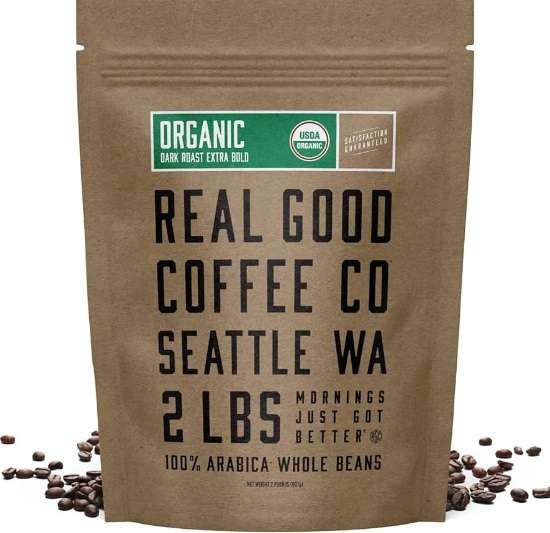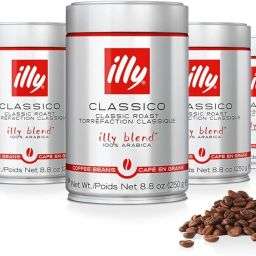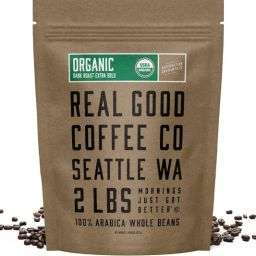
In recent years, organic coffee has seen a surge in popularity among coffee enthusiasts and environmental advocates alike. This trend is driven by a growing awareness of the benefits that organic farming practices offer, not just for the coffee drinkers’ health but also for the environment. Organic coffee is cultivated without the use of synthetic pesticides and fertilizers, relying instead on natural processes that maintain soil health and biodiversity. This approach not only ensures the purity of the coffee beans but also supports sustainable agriculture practices that benefit the planet.
A crucial aspect of organic coffee is the certification process, with the USDA Organic certification being among the most recognized and sought-after. This label assures consumers that the coffee they purchase meets stringent organic standards, from the farm to the cup. Certifications like USDA Organic play a pivotal role in building consumer confidence, guaranteeing that the coffee is genuinely organic and produced through environmentally friendly practices.
Key Takeaways
In this article, readers will gain comprehensive insights into the world of organic coffee, including:
- The Health Benefits: Understand how organic coffee reduces exposure to pesticides and chemicals, potentially offering a purer, healthier cup of coffee.
- Environmental Impact: Discover the positive effects of organic farming on the environment, including promoting biodiversity and reducing pollution.
- Certification Significance: Learn about the importance of certifications like USDA Organic, Bird Friendly, and Rainforest Alliance, and what these labels mean for the quality and sustainability of your coffee.
- Choosing the Best Brand: Get tips on selecting the best organic coffee brand that aligns with your taste preferences and ethical values, considering factors like origin, roast type, and certification.
- Sustainability Efforts: Explore how leading organic coffee companies are committing to sustainability through practices like carbon-negative production and ethical sourcing.
- Flavor Profiles: Uncover the unique flavor profiles offered by organic coffee brands, highlighting how organic farming methods contribute to the rich and diverse tastes of the coffee.
Health and Environmental Benefits
Choosing organic coffee is not only a matter of taste but also of health and environmental stewardship. Organic coffee is cultivated without synthetic pesticides and fertilizers, reducing consumers’ exposure to harmful chemicals. Studies have shown that organic foods, including coffee, contain lower levels of pesticide residues, which may contribute to better health outcomes. Furthermore, organic coffee farming supports natural soil health and biodiversity, crucial elements for sustainable agriculture.
The environmental benefits of organic coffee farming are equally compelling. By avoiding chemical inputs, organic farms protect water resources and promote healthier ecosystems. This sustainable approach ensures that wildlife habitats are preserved, and soil fertility is maintained, contributing to a healthier planet. Organic practices also mitigate climate change by sequestering carbon in the soil, showcasing the significant environmental advantages of choosing organic coffee.
Certified Organic vs. Non-Certified
The USDA Organic certification stands as a hallmark of trust and quality in the organic market. This certification ensures that coffee is grown following strict organic standards, including the prohibition of synthetic pesticides and fertilizers, and the implementation of environmentally sustainable practices. The USDA Organic seal assures consumers of the coffee’s organic integrity from farm to cup.
Beyond USDA Organic, other certifications like Bird Friendly and Rainforest Alliance offer additional layers of assurance regarding environmental and ethical practices. The Bird Friendly certification, for example, focuses on preserving bird habitats in coffee-growing areas, while the Rainforest Alliance certification emphasizes broader sustainability criteria, including worker rights and ecosystem conservation. These certifications highlight the commitment of organic coffee companies to not only produce high-quality coffee but also to protect the environment and support ethical practices in the coffee industry.
Opting for certified organic coffee over non-certified alternatives ensures that consumers are supporting environmentally sustainable and ethical farming practices. These certifications serve as a guide for consumers who wish to make informed choices that align with their values, offering peace of mind that their coffee consumption contributes positively to both health and the environment.
Top Organic Coffee Companies
In the realm of organic coffee, several brands stand out for their exceptional commitment to quality, sustainability, and unique offerings. These companies not only provide coffee lovers with exquisite taste experiences but also contribute positively to environmental conservation efforts and ethical practices within the coffee industry.
Fabula Coffee
Fabula Coffee is renowned for its Certified Organic, Low-Acid, Single-Origin coffees. This brand places a strong emphasis on health and environmental sustainability, sourcing beans from high-altitude, shade-grown, small-batch farms primarily in South and Central America.
Fabula’s coffees are celebrated for their smoothness and easy digestion, making them an ideal choice for coffee enthusiasts with sensitive stomachs. Additionally, their beans are freshly roasted right before shipping, ensuring the highest quality and flavor.
Kicking Horse Coffee
Kicking Horse Coffee, a powerhouse in the organic coffee world, offers a range of flavors that are both bold and intricate. Their coffee is not only certified organic but also fair trade, underscoring their commitment to ethical sourcing practices. Kicking Horse’s beans are sourced from Africa, Central, and South America, regions known for their rich coffee-growing climates.
The brand’s dedication to sustainability is evident in their commitment to environmental stewardship and ethical practices, making their coffee a guilt-free pleasure for consumers.
Tiny Footprint Coffee
Tiny Footprint Coffee is the world’s first carbon-negative coffee company, setting a remarkable precedent in the coffee industry for environmental responsibility. Their commitment to sustainability extends beyond just organic farming practices; for every pound of coffee sold, Tiny Footprint makes a significant donation to fund reforestation efforts in Ecuador’s Mindo cloud forest.
This not only offsets their carbon footprint but actively contributes to the preservation of biodiversity. Their coffee offerings are known for their fruity, floral, and cocoa notes, ideal for cold brew enthusiasts.
How to Choose the Best Organic Coffee
Buyer’s Guide
Selecting the best organic coffee requires attention to several key factors that can significantly influence both taste and sustainability. Here are some tips to guide you through the process:
- Understand Roast Types: Organic coffee comes in various roast levels from light to dark. Light roasts tend to have a milder flavor and higher acidity, while dark roasts offer a stronger, more robust taste. Choose according to your flavor preference.
- Bean Origins: The origin of the coffee bean plays a crucial role in its flavor profile. Beans from different regions offer unique tastes, from the fruity notes of African beans to the nutty flavors of South American varieties. Explore single-origin coffees for distinct characteristics.
- Certifications: Look for certifications such as USDA Organic, Fair Trade, Rainforest Alliance, and Bird Friendly. These labels ensure that the coffee meets specific standards of organic farming, ethical sourcing, and environmental conservation.
- Read Labels Carefully: Beyond certifications, labels can provide valuable information about the coffee’s sourcing, processing, and roasting date. Fresher coffee usually means a better taste.
FAQs
- What is the difference between organic and regular coffee? Organic coffee is grown without synthetic pesticides and fertilizers, making it a healthier choice for both consumers and the environment. Regular coffee may contain residues from these chemicals.
- How should I store organic coffee beans? Store them in an airtight container away from light, heat, and moisture to preserve their freshness and flavor. Avoid freezing the beans, as this can affect their quality.
- Does organic farming impact coffee taste? Yes, organic farming can enhance the natural flavors of coffee by improving soil quality and biodiversity, which in turn can produce beans with richer and more complex flavor profiles.
Final Thoughts
Choosing organic coffee is a step towards a healthier lifestyle and a more sustainable world. By understanding roast types, bean origins, and the importance of certifications, you can select high-quality organic coffee that aligns with your taste preferences and ethical values. Remember, every cup of organic coffee not only offers a delightful taste experience but also supports environmental conservation and fair practices in the coffee industry.









